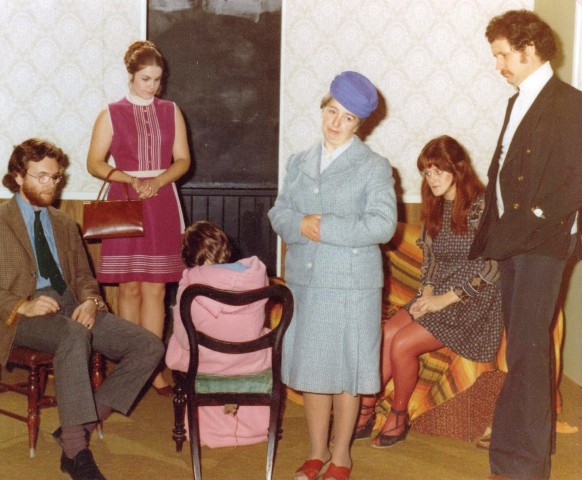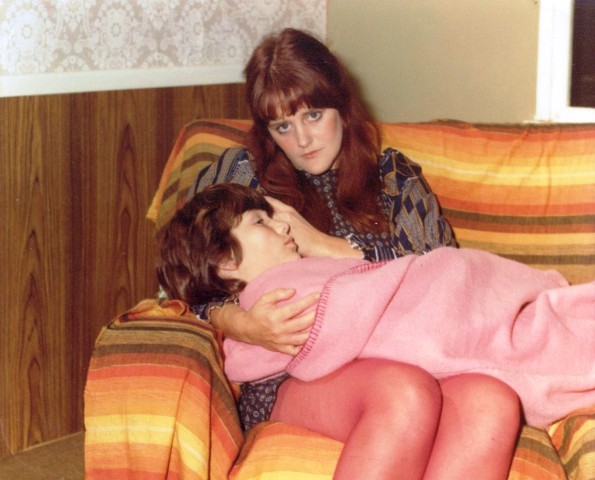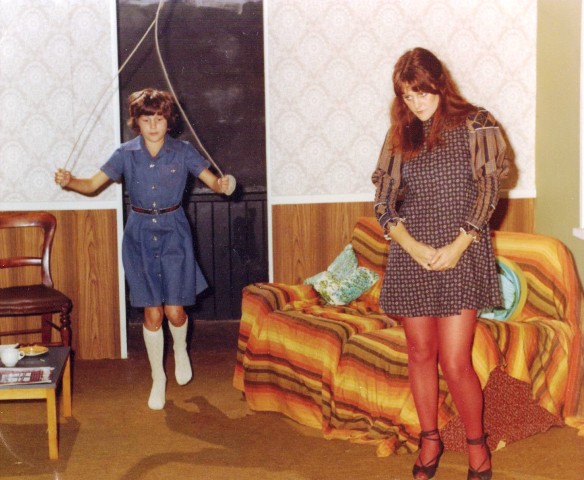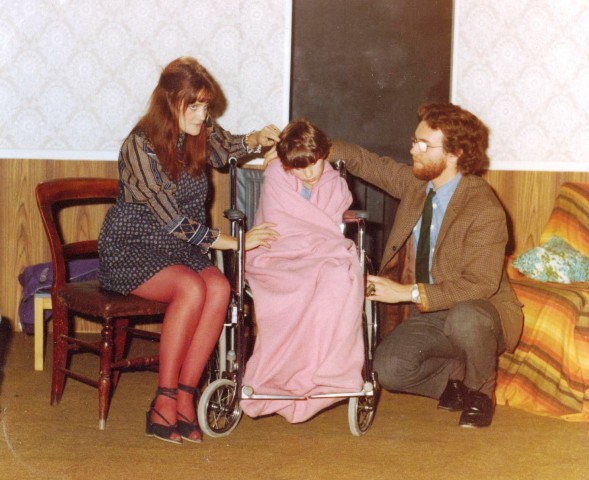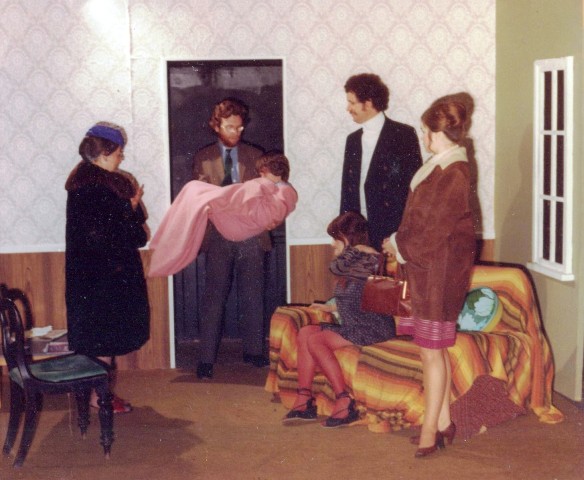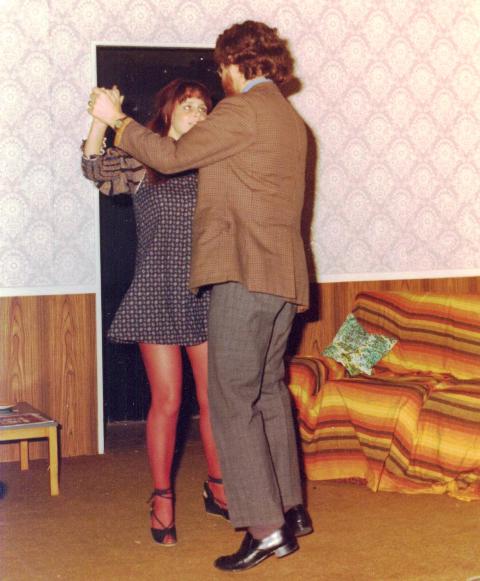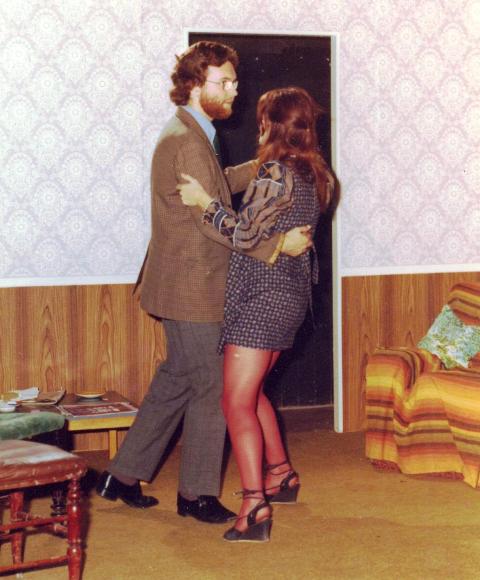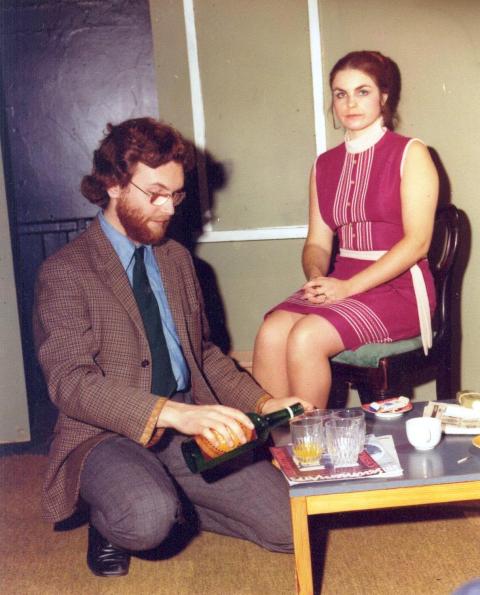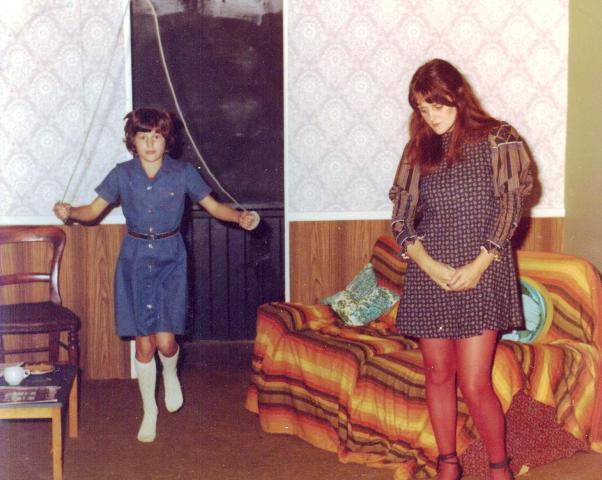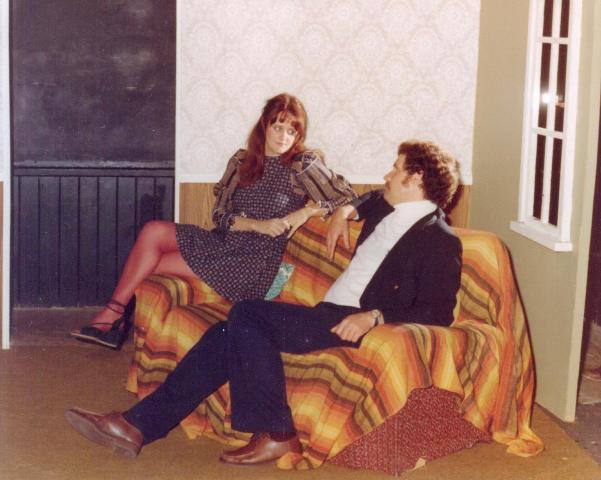The Bench Production
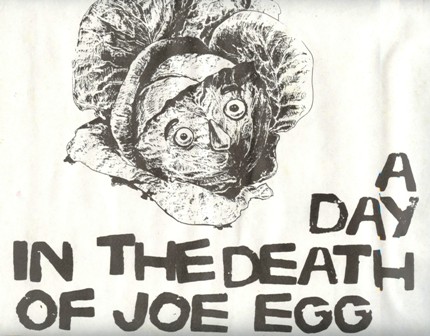
This play was staged under Bench Theatre's original company name of Theatre Union, at their theatre in West Street and was their very last play to be staged there.
It was actually the building in West Street, Havant where most of the Company's early plays were staged, which was called the Bench Theatre (after its prior use as a magistrates' court). The company's name was changed gradually by word of mouth and general usage between the years 1973 - 1977 when reviewers, and then members themselves, gradually stopped referring to Theatre Union and started calling the company of players 'Bench Theatre'. The new Company name of Bench Theatre was adopted in to all the promotional literature after they moved from the old theatre (which had been their home for nearly 7 years) in to the Old Town Hall building in East Street.
Cast
| Bri | David Penrose |
| Sheila | Jacki Curtis |
| Joe | Louise Mogford |
| Pam | Jill Duncan |
| Freddie | Peter Duncan |
| Grace | Janet Simpson |
Crew
| Director | Tim Mahoney |
| Stage Manager | James Hatt |
| Assistant Stage Manager | Susan Webber |
| Set Construction | Ed Sawyer |
| Lighting | Langley Gifford Roy Crutchley |
| Costumes | Jenny Jones |
| Sound | Paul Morris |
| Properties | Derek Cusdin |
| Business Manager | Robbie Cattermole |
| Front of House | Sheila Spackman |
| Make up | Sharon Rose |
Director's Notes
The play concerns the problem facing the parents of an epileptic and sub normal child; not only the obvious difficulties in caring for such a child but also the tensions generated within the family by this kind of tragedy. By implication, the play is also about all those of us whose lives are deformed by illness.
It is also about the ugly side of the affluent society - it deals with the agony of total acceptance. It touches on solution by institution and tests our instinctive reactions to the abnormal. The high sierras of western society are white and beautiful and, of course, odour-free; this brave play is about a crippled child who suffers from chronic constipation, dribbles and wets her pants.
Tim Mahoney
Reviews
'Disturbing ' play fits in at tiny theatreP.H.
Review Headline
Havant's tiny Bench Theatre must be a director's nightmare - but it is tailor-made for characters who like to talk directly to the audience. That is just what happened in the current production, 'A Day in the Death of Joe Egg'. This play is about a ten-year old handicapped child, and the problems facing her family. But it is not a tragedy which is viewed from a distance, for within seconds the parents are conversing with the audience, sharing their deepest fears and their secret fantasies. The unappealing part of Joe, the crippled girl, is bravely tackled by Louise Mogford, who vividly personifies the worst fears of every potential parent. Most people will recognise facets of their own attitudes to mental illness in the minor characters of this play.
Janet Simpson is well cast as the over solicitous grandmother, and Peter Duncan makes a spirited Freddie, the well-meaning friend who is all too full of good advice. Jill Duncan, as Pam, provides that touch of squeamishness which most of us must have felt at times in such circumstances. Jacki Curtis, as the mother, Sheila, convincingly portrays a woman who has fought her own guilt and despair, yet still retains a glimmer of hope. The real honours must go to David Penrose, who plays Brian, the father the most complex and difficult character of all. He tells his own story in a series of asides which are charged with emotion and black humour. Then seemingly without effort he switches roles, to caricature the Vicar, the doctors and other people who have been involved in the family crisis.
This is a thought-provoking production which is well worth seeing. There are further performances tonight and tomorrow at the Bench Theatre, West Street, Havant and on Thursday, Friday, and Saturday next week.
The News, 21st October 1977
